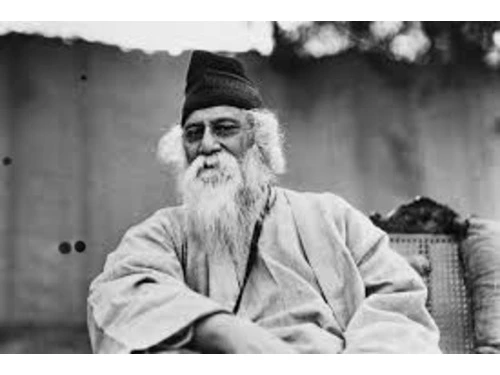
Rabindranath Tagore’s Poetry: A Timeless Symphony of Emotions
By Meenakshi G on February 9, 2025
Rabindranath Tagore, the greatest poet of Bengal and the first non-European Nobel Laureate in Literature, revolutionized Bengali poetry with his profound expressions of love, nature, devotion, and humanism. His poetry transcends time and culture, touching the hearts of readers across generations.
The Essence of Rabindranath’s Poetry
Tagore’s poetry is a seamless blend of mysticism, nature, human emotions, and spirituality. His words flow like music, evoking deep emotions and thoughts. Whether it’s the simple beauty of nature, the depth of human relationships, or the call for freedom, his poetry captures the essence of life itself.
Some of his most remarkable poetry collections include:
- Gitanjali (Song Offerings) – A collection of spiritual and philosophical poems that won him the Nobel Prize in 1913.
- Sonar Tari (The Golden Boat) – A masterpiece reflecting the transience of life.
- Balaka (The Flight of Cranes) – A symbol of progress, movement, and an ever-changing world.
Themes in Rabindranath’s Poetry
🌿 Nature’s Melody
Nature plays a central role in Tagore’s poetry. The rivers, trees, sky, and seasons are not just background elements but living characters in his work. In his famous poem “Shesher Kobita,” he beautifully describes the cycle of life through nature’s perspective.
“Moron re, tuhu momo Shyama saman
Tumi sarada sandhya’r alok-samiran”
❤️ Love and Human Emotions
Tagore’s love poems are not just about romance but also about the deeper connection between souls. His poetry explores love in its various forms—romantic, spiritual, and platonic. Poems like “Unmadini” and “Tomar Khola Hawa” reflect his delicate portrayal of emotions.
“Tomar khola hawa, lagey praan e
Bojre tomay pai, shudhu tai e jane!”
🕊 Freedom and Patriotism
Tagore’s poetry was also a voice of freedom and resistance against colonial rule. His famous poem “Where the Mind is Without Fear” (Chitto Jetha Bhoyshunno) is a call for a free and enlightened society.
“Where the mind is without fear and the head is held high,
Where knowledge is free…”
His song “Jana Gana Mana” later became the national anthem of India, while “Amar Sonar Bangla” became Bangladesh’s national anthem.
☀ Spirituality and Philosophy
A deep sense of spirituality runs through Tagore’s poetry (Rabindranather kobita). His works often reflect his belief in the divine presence in everyday life. He viewed God not as a distant entity but as a close companion. “Gitanjali” is filled with such spiritual realizations:
“This is my prayer to thee, my Lord—
Strike, strike at the root of penury in my heart!”
Rabindranath’s Poetry in Today’s World
Even in the modern world, Tagore’s poetry remains relevant. His verses continue to inspire artists, musicians, and thinkers. His ability to express profound thoughts in simple words makes his poetry a treasure trove of wisdom.
Whether you seek love, inspiration, or a connection with nature, Rabindranath’s poetry will always offer something timeless and beautiful.
Final Thoughts
Rabindranath Tagore’s poetry (Rabindranather kobita) is not just literature—it is a way of life. His words have the power to heal, inspire, and awaken our deepest emotions. As we read his verses, we feel the magic of words that can touch the soul.
What’s your favorite poem by Tagore? Let me know in the comments! 😊